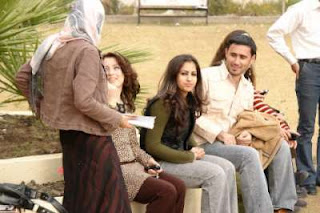Leadership Series VII: Pandemic Created Combat-Like Trauma for Pharmacists
When I was the CEO for the SC Pharmacy Association, I would visit about 20 pharmacies a week. As I was waiting to meet with the team at each pharmacy, I watched each member of the community pharmacy team run from one end of the pharmacy to the next to answer the phones that did not stop ringing with calls from patients as well as providers, service the drive through customers, arrange for minute clinics as well as patient counseling, and take care of dozens of patients waiting in line for COVID-19 vaccines and/or testing.
Just like other healthcare providers, pharmacists and their team members are under an immense amount of stress, pressure, and demand to serve the needs of their patients. I watched them work selflessly to meet the needs of their patients.
Throughout the pandemic, overrun hospitals were often referred to a combat zones, and healthcare workers as frontline soldiers. Research shows that those comparisons were probably warranted. As they faced fatigue, death, fear of infection, burnout, and watching people ignore public health recommendations, healthcare workers have been experiencing record levels of mental health distress.
What healthcare workers faced early in the pandemic is a type of post-traumatic disorder (PTSD) called “moral injury,” a feeling of guilt or shame after having participated in an extraordinary high-stress situation that required immediate and often life-or-death decision making.
The impact of the pandemic on the mental health of healthcare workers, including pharmacists, has been well documented. Every day, we hear about rising reports of exhaustion, burnout and staff turnover in our community. A recent survey reveals that over 60% of pharmacists report experiencing a high level of burnout in practice. This is one of the highest rates among other healthcare professionals, even higher than those found among surgeons, oncologists, and emergency and trauma unit practitioners. Research shows that members of the healthcare team, pharmacists included, are more prone to making errors when under a lot of pressure. This is particularly concerning when considering that medical errors are the third leading cause of death in the United States with cardiovascular disease and cancer being the first and second.
Due to the demand and the stress, they are under, pharmacists are more likely to suffer more from PTSD than the general population. It’s easy to understand why. Pharmacists bear witness to their patients’ suffering, and many lack complete control over their work conditions and their ability to maintain personal safety. New demands created by COVID-19 are fueling these stress responses—further raising the risk of PTSD.
It has been said that frontline healthcare workers are experiencing a level of mental health distress comparable to what is seen in soldiers who serve in combat. As a trauma-informed pharmacist who has personally served at the frontline in combat zones, I believe this comparison is accurate.
The human brain is not designed for uncertainty. It is designed for survival. In times of extreme distress and uncertainty, the neocortex – where higher level thinking takes place – is overtaken by the parts of the brain that govern emotion and survival, the amygdala also known as the body’s alarm system. We become more self-centered and less collaborative, giving and empathetic. It’s a self-defense mechanism that can negatively impact our work and our relationships.
Healthcare leaders face a different kind of trauma brought about by fear of the unknown. One of the classic symptoms of PTSD is flashbacks. Leaders may have ‘flash-forwards’ -- attacks of panic and anxiety about what might happen in the future. Leaders are supposed to have the answers, so they don’t feel as though they have anyone they can turn to for advice. We are seeing a 300% increase in reports of loneliness among leaders. As a health threat, loneliness can be more harmful than smoking or obesity.
We enter this profession to help, but often don’t know how to help ourselves. Fortunately, there are techniques that can help prevent our emotional brain from sending false alarms.
Mindfulness is about bringing ourselves to a full awareness of the present moment, to keep us calm and focused when exposed to images, thoughts or sounds that are reminiscent of our past or that are causing distress, and to restore a full ownership of our body, mind, and soul.
Yoga includes practices specifically designed for people with trauma. Yoga is about looking inward and listening to the things our body is telling us.
Pranayama, the technique that teaches us to slowly breathe in, hold, and slowly release the breath when accessing painful memories or thinking about stressful situations can be helpful too.
As leaders in the profession, it is time for us to wake up to the unbearable work conditions that our fellow pharmacists are under; from long working hours, a lack of resources, the inability to take needed breaks, and the added responsibilities of meeting the demand created by the pandemic, community pharmacists live it all on daily basis. While I am excited to see associations pay attention to pharmacists’ wellbeing, I feel that most initiatives have been pharmacist-centered and very few have been system-centered. When you put pharmacists in a system that induces stress, there is little room for pharmacist wellbeing.
We can’t solve the problem if we can’t prove the problem exists. Telling your stories can help bring about positive change and what are some of the changes needed to address the wellbeing of pharmacists? Increasing the number of technicians, reducing the number of working hours, and hiring more pharmacists to meet the patients’ demands. I recommend that thought leaders meet and agree on what specific changes can be made so pharmacists are better equipped to care for their patients.




Excellent and relevant post. Thank you.
ReplyDelete